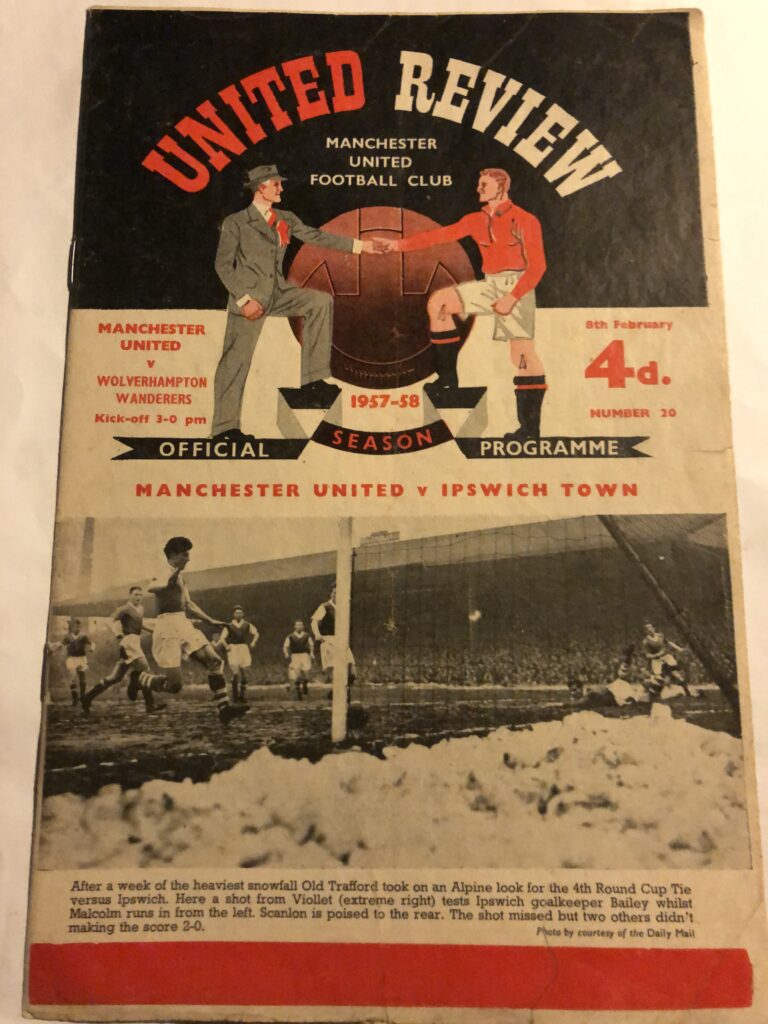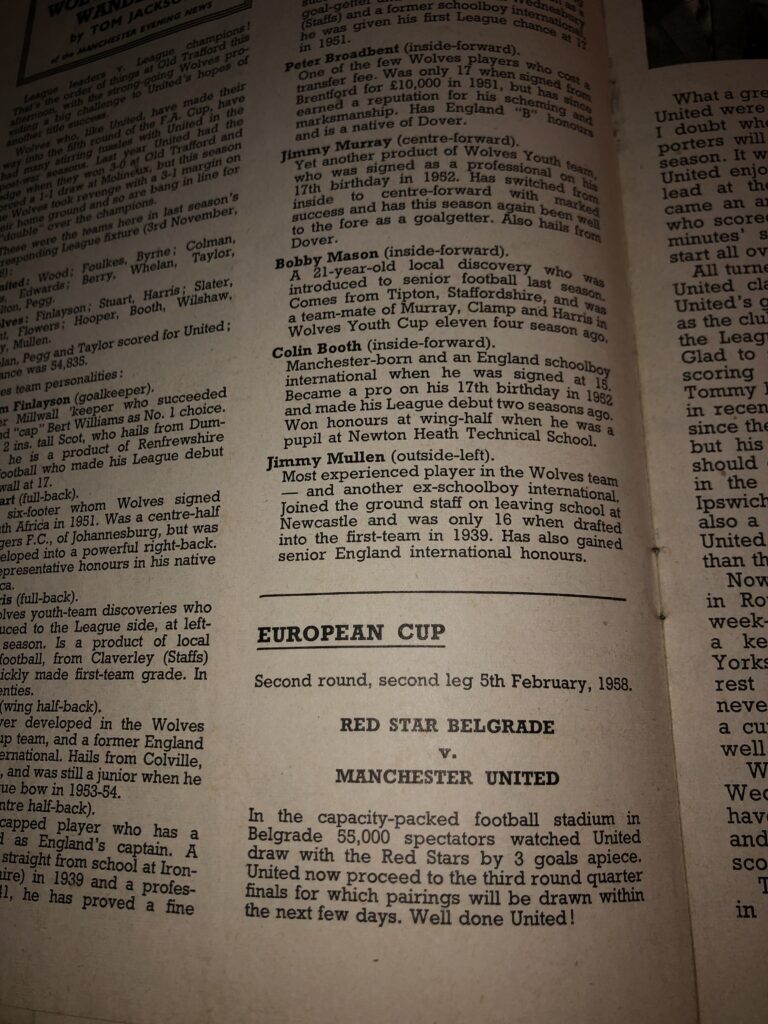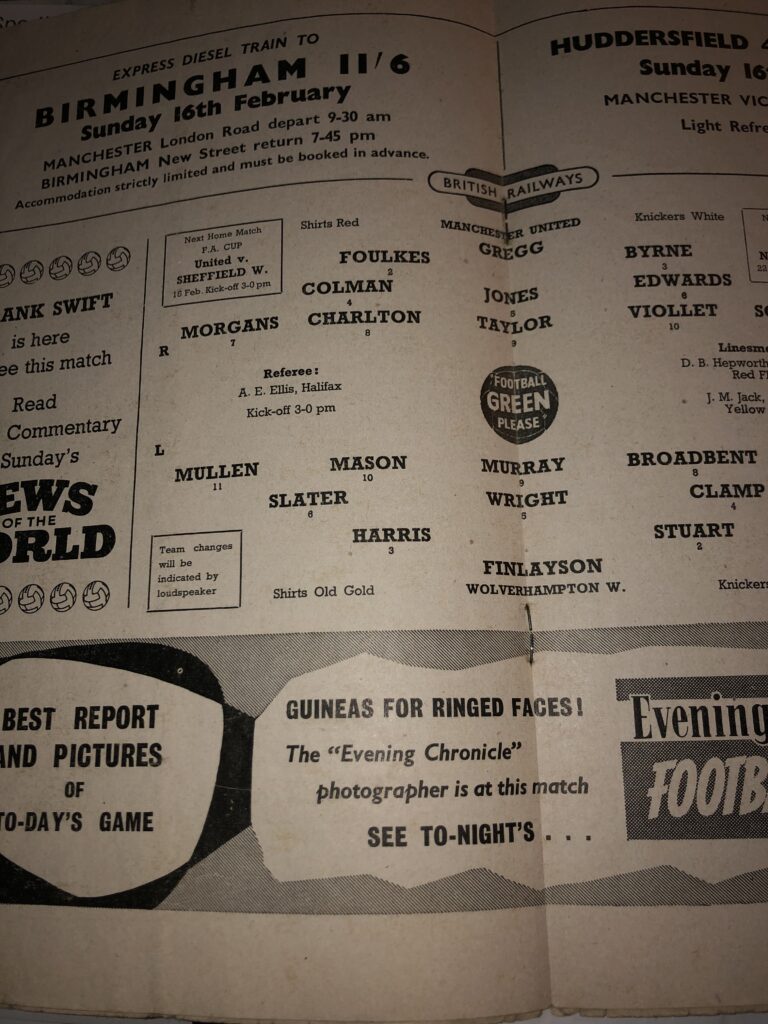
11th May 2021
When Project Big Picture emerged last October, we were asked in an interview with ITV News as to what the future might hold for England’s football clubs given the radical nature of the proposed reforms as outlined by the American-backed initiative. We replied that the financial state of the game was such that something had to be done to address it and that simply ‘doing nothing’ or maintaining the status quo was simply not an option. Project Big Picture was an initial attempt at breaking football’s financial and economic bind.
Some six months later and the launch (was it a launch or just merely a slow escape?) of Super League was the inevitable opposite of ‘doing nothing’. However, as events have proved in the most Newtonian fashion, for every action there is an equal and opposite reaction.
It has been fascinating to observe football’s collective meltdown over something which to us was entirely predictable. Don’t misunderstand us; as much as we could see Super League coming to the fore, the prospect and format was not the kind of football or competition that was going to hold us in awe.
In fact, we do like our game as much as anybody else, but it becomes more difficult to reason in favour of the status quo when the game’s economics have been deteriorating for years with little movement or incentive to change from the sport’s administrators. In this context and when viewed through this lens, the Super League is an all-too obvious reaction to the status quo which prevents owners from achieving a value-creating return on their investments unless they sell up. Sadly, for some, ‘Soft Power’ comes with an unprofitable price tag.
The debate and reaction since has been highly emotive but lacking in numerical substance. We pray for the day when a TV studio runner will give Gary Neville and Jamie Carragher a calculator so that they can finally attempt to decipher why this has all come about. As repetitive as it is for us, it is not about greed. This is about balancing the books although how we got here is largely down to the inability of club owners to spend slightly less than the revenue that their clubs generate.
Indeed, when England’s Big 6 clubs have collectively achieved economic losses of £555m in a single season (2019-20) and £2bn over the last 10 years (2011-20), this simply reveals that, at the most senior level, the current structure of the “football industry” makes it is extremely challenging to generate an economic return yet the game’s auditor of choice have extolled on numerous occasions the profitability and transformational financial capabilities of clubs to achieve profits. Money League it might be, but Profit League it certainly isn’t. And to paraphrase FSG’s John Henry, we’d love to know what they are smoking over there…
With emotions running high, the call for fan representation on the boards of football clubs is a noble aspiration. However, fan participation or representation at Board level does not change the game’s fundamental economics which are extremely challenging.
However, the fan backlash has exposed the six Super League English club owners’ lack of understanding of their fans and their aspirations. And furthermore, it has been evident that owners have forgotten the roots of the very entities that they now ‘own’.
It was from the Victorian cricket clubs, churches and industrial works sporting clubs that emerged a recreational culture which has not only spread around the world but also became deeply ingrained into the fabric of British life. Arguably, almost everyone has a favourite football team or club with its heroes and villains to boot.
It is an almost ‘inescapable’ sport but it is one that is under increasing pressure for attention from the planet’s youth. And it has become abundantly clear in recent months that the TV package is equally effective with or without crowds.
Maybe the Super League in its first iteration was as much about portability as it was about profits à la Formula 1 with a format designed to wean the world’s teens away from Call of Duty and back into FIFA 21 and help progress their transition from the bedroom’s Championship Manager to fee-paying customers and replica shirt buyers.
For many of the older generation (or customer base (!)), it’s the history of family ties, locational links and nostalgia that binds the unwavering support of fans with their club. The owners want to eliminate risk, both financially and operationally. The football fan thrives on it. A weakened team against the league leaders, a cup run that culminates with a trip to Old Trafford, the Premier League team against the non-league part-timers.
It’s all part of the mix and attraction that makes football the competitive sport that it should be. An NFL-style format might be attractive to some, but where’s the edge of your seat experience when your team has repeatedly drawn against Real Madrid for that precious place in perpetual mid-table limbo?
From our own experience, the emotional evolution of the game can be aptly tracked via the evolution of the football programme. From the single sheet ‘order of events and rules’ of the early Victorian game to the stapled advertising double-sheets of the 1920s, the mini-booklets of the 1950s to the Argos-sized catalogues that are now so common for modern cup finals. The game’s connection with the fan has clearly become more commercialised. And yet some programmes stand out for very different reasons.
Perhaps the most famous programme is for the game that never was. This was the Division One fixture between Manchester United and Wolves at Old Trafford which was scheduled to take place on 8th February 1958. This particular item is one of many notable football programmes to come into the possession of one of us following a family bereavement. It is a fascinating archive of football’s social standing and role in the community but also a window into the growth of the game and the money that has inevitably followed (or fuelled it).
The reason why the game never took place was, of course, the fatal Munich air disaster on 6th February following Manchester United’s 3-3 draw in Belgrade against Red Star in the 2nd Round of the then 3-year old European Cup competition.
The club ordered the printers to pulp the match programme as the 8th February fixture was hurridly cancelled. A few exceedingly rare copies survived. The particular copy in possession is untrimmed (see below), which means that the printers had not guillotined or cut the outer margins of the programme to leave a clean, straight edge prior to packing and distribution. Indeed, it should never have seen the light of day. These factors have helped to make the item a raw and emotive combination of paper and ink.

It is also delicate in form but in its own way reflects some of the inclusivity of what it means to be part of a club. Matt Busby’s introductory note congratulates Wolves’ manager Stan Cullis in leading Division One but ends with the news of the sudden death of a club director in the team’s hotel just prior to playing Arsenal at Highbury during the previous weekend.
On page four (see below) there is a brief mention of the Red Star Belgrade game and the 3-3 result (the game was played on 5th February 1958).

The centre pages highlight the two teams with individual players names laid out in formation. To the left is an advertisement for the News of the World’s Frank Swift and his Sunday commentary, which sadly would never appear again as the former Manchester City player was one of the unfortunate victims of the crash.

Page nine displays the Division One table with Wolves leading on 42pts following 28 games (2pts for a win), Preston North End in second on 37pts and Manchester United in third place on 36pts. The programme token, the bane of many a Manchester United fan, sits proudly in pink at the top of the page.
In all, it is 12 pages of pure footballing history.
The following scheduled home game at Old Trafford was the 5th Round of the FA Cup against Sheffield Wednesday on 15th February 1958. The team sheet in the centre pages of this particular programme was blank for Manchester United. The crash had decimated the team and replacements were still being frantically sought at the time of printing. Nobody within the club knew who was actually going to play.
Both programmes come from an age when both club and fan were of the same ilk. Players back then were accessible to the general public and probably lived in your street or road. Many players would take the bus home after a match along with the fans. The connection was real and tangible.
Unfortunately, the modern game has become a much more remote affair as the level of money circulating within football has vastly increased but club owners would do well to revisit the history of their clubs and at least attempt to understand how and why the game and their clubs are so important to so many. Some might even call it audience research…
We sometimes find in the corporate world CEOs who have forgotten the origins of the business under their stewardship and have ploughed forward with a value-destroying acquisition and tout it as ‘the next step’ or as being ‘transformational’ (where have we seen that before?) for the company.
In football’s case, the emotional tempo behind the issue of fan representation and influence has powered up since the Super League fiasco which in itself promised bigger and better times. But will true power-wielding fan representation actually happen?
We have previously advocated for an independent regulator for football as a means of protection for clubs from rogue owners but for it to work requires the support of HM Govt. in changing and adapting legislation regarding the governance of the clubs themselves. We fear that the will of the people might be more energetic than the will of those in power to make the necessary changes.
Indeed, since 1888 football clubs have been largely treated in the same manner as any other registered business and subject to the same rulebook. We do, however, wonder if a Conservative government will take a leaf out of the socialist playbook and legislate for fan representation on the boards of football clubs with a degree of meaningful influence. The question is how many club owners will accept that being the capitalists (and Conservative Party donors perhaps) that they are?
Inevitably, we are drawn back to the position of ‘doing nothing is not an option’. Super League will return in a different form if doing nothing is indeed the order of the day. The elimination of risk remains as a key aim for the owners because the financials are so bad; we will be announcing record losses for football in the coming weeks which will make for very grim reading…
Finally, there is much at stake but the conversation about football’s future needs to focus more on the financial and economic facts of the game. It has to be an evidence-based argument otherwise the emotional dynamics will override rational thought and further drive the game towards the abyss.
As a consequence, the pioneering spirit of clubs in aiming to play the best teams in Europe having earned that right through their domestic league performances, along with those early adventures and disasters that have helped to shape the game, will be lost and forgotten. And that is a huge price to pay for allowing financial mismanagement to flourish.
vysyble
Follow vysyble on Twitter
26th April 2021 – A Bitter Pill – GSK’s new strategic direction fails to find riches in the middle of a pandemic when other pharma companies have prospered.
25th April 2021 – The Wrong Stuff – American-style football league won’t wash but the conditions that led to its launch are still present and are likely to get worse.
19th April 2021 – Super League Arrives – As we predicted, football’s elite breakaway emerges from the shadows.
30th March 2021 – $hooting B£ank$ – Arsenal’s commercial performance analysed.
22nd February 2021 – Measure for Measure – Take two financial measures, add pandemic and stir.
18th January 2021 – The Football Factory – If football was an industrial entity…
8th January 2021 – The Oil Majors – An Update – A shareholder return performance review of the 4 major oil companies in 2020.
10th December 2020 – Pump Up The Volume – ExxonMobil comes under fire from an agitated investor.
16th November 2020 – The Pain Game – Manchester United’s Q1 2021 financial release opens the lid on a Covid-19-affected financial can of worms.
11th November 2020 – A Tight Squeeze – Football’s Elephant in the Room leaving little space for financial relief.
29th October 2020 – Form and Function – Proposals-a-plenty for football’s structural reform.
13th October 2020 – Project Big Profit – Americans come bearing a proposal for football’s structural reform, just as we predicted in 2016.
8th October 2020 – Game Aid – Football is caught in the crossfire of indecision and financial necessity.
24th September 2020 – Crisis? What Crisis? – We look back 12 months at the demise of Thomas Cook and its relevance to more recent events.
11th September 2020 – Distance Learning – New rules and new values as Covid-19 challenges traditional mindsets and misconceptions.
19th August 2020 – Socked! Marks & Spencer’s Shrinking Value – Retail giant is fast becoming a shadow of its former self.
22nd May 2020 – You’re Gonna Need a Bigger Boat – An assessment of the double financial whammy of potential relegation from the Premier League and Covid-19.
30th April 2020 – Home, Alone – Initial indicators from the wider economy point towards economic and financial downsizing in sport.
6th April 2020 – Board Games – Government, football clubs and players adopt separate ‘brace’ positions as Covid-19 crashes the sports economy.
27th March 2020 – Markets, Mayhem and Manchester United – A look at the questions posed by the share prices of publicly listed businesses.
15th March 2020 – When Saturday Goes – Football has come to a halt. We take stock of the game’s position and ponder its return.
10th March 2020 – Futureworld – The potential economic effects of the COVID-19 outbreak.
19th February 2020 – Lemon Law – How Financial Fair Play can give a misleading view of football club finances.
8th February 2020 – Hammered – Our financial perspective on some of the clubs involved in the Premier League relegation battle.
12th December 2019 – The Cost of Chasing Gold– In collaboration with the BBC, we look at the high price being paid by clubs to gain promotion into the Premier League.
7th November 2019 – Where to Next for M&S? – November 2019 results suggests the retailer is losing its way
10th October 2019 – Red Mist – Manchester United’s 2019 FY numbers and the stagnation of England’s biggest revenue-earning club.
7th September 2019 – Not Just A Loss But… – A detailed look at the decline in Marks & Spencer’s fortunes.
29th August 2019 – Telling It Like It Is… – What really happened when we talked to the English Football League.
5th July 2019 – Chopping Board – Knives out for former Tesco chief.
25th May 2019 –Repeat Prescription – Few believed us the first time around regarding football’s financial plight…
19th March 2019 – Stuff and ‘Nonsense’– Why the Economic Profit metric is the most transparent measure of business performance.
13th March 2019 – Financial Fair Play – Guilty as Charged? – Our thoughts on FFP schemes and their key weakness.
18th December 2018 – Long Division – The Post-Ferguson years at Old Trafford have come at the expense of declining economic and on-pitch performance.
20th November 2018 – The Relegation Game – Tales of woe and economic performance at the wrong end of the Premier League table.
9th October 2018 – A Different View – Why fans ought to be acutely aware of football’s financial dynamics.
17th August 2018 – The End of the Beginning – La Liga heads west to conquer new worlds.
9th August 2018 – Reaching for Sky – the sequel – Latest offer price for satellite TV company is good for shareholders, less so for prospective owners.
8th August 2018 – American Dreams – English Premier League economic dynamics and American money – is a Euro Super League the next step?
3rd August 2018 – Mall Administration – Retail Property Co. bonus payouts at odds with increasing shareholder value.
20th April 2018 – Goonernomics Part Deux – The departure of Arsene Wenger…
18th April 2018 – The Price of Everything – Tesco’s latest numbers offer little in value.
12th April 2018 – Say What? – WPP’s very mixed message.
14th February 2018 – In Case of Emergency – Premier League’s UK TV rights auction comes up short.
7th February 2018 – Lost in Transmission – Top Premier League clubs look beyond domestic TV rights.
4th December 2017 – A Billion here, a Billion there… – The Premier League reaches a major milestone, quietly…
25th November 2017 – Getting out of Toon. – Is Mike Ashley pitching the sale price of Newcastle United at the right level?
16th October 2017 – Goonernomics. How the ‘Bank of England’ club falls short of its North London neighbour.
25th September 2017 – Highlights. More record-breaking numbers from the biggest football club in the land, but no economic profit…
23rd September 2017 – Football’s Economic Back Pass. A guest blog for the Soccernomics website.
12th September 2017 – Crystal Balls-up. Changing strategic direction is not a good idea when you haven’t looked at the economics.
27th July 2017 – Football’s Summer of Money and the £65 pint of beer. The sport that just can’t spend enough.
11th July 2017 – Football Special. Observations following the launch of ‘We’re So Rich…’
9th May 2017 – Illuminating, non? Political energy lacks vision and power.
2nd March 2017 – Claudio’s Burden. The price of failure outweighs the price of success.
12th January 2017 – Shopping for Godot. A never-ending quest for value in Retail.
27th December 2016 – Reaching for Sky. Is Rupert Murdoch’s £10.75 per share a fair price?
6th December 2016 – Auld Lang Syne. A reminder from history of the damage that poor financial planning can cause.
1st December 2016 – Fork Handles? Four Candles? Tesco’s blurred strategic vision.
27th November 2016 – Football’s Instant Replay. Financial warning signals for the top English Premier League clubs.
